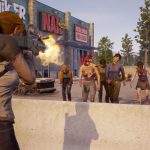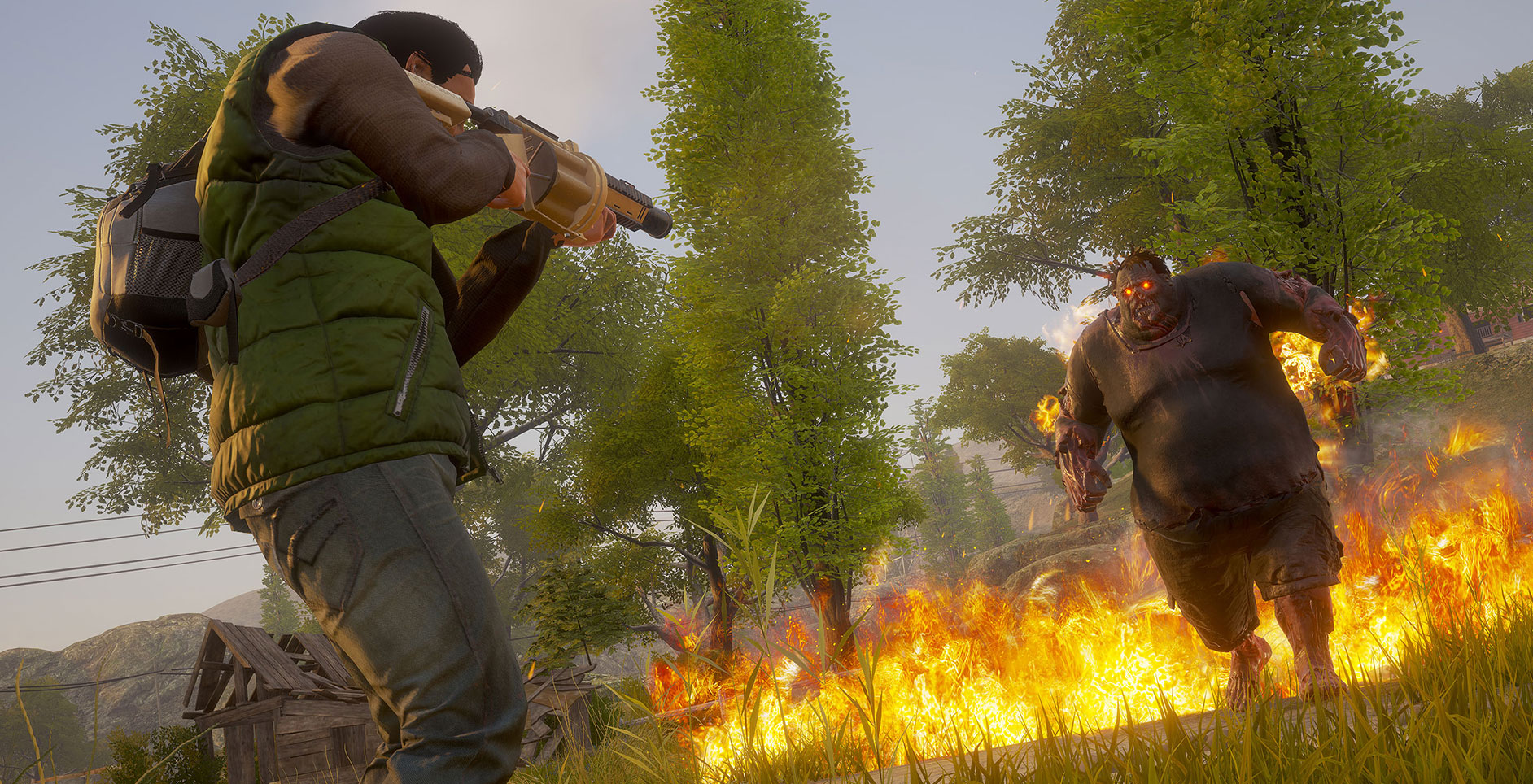Recently we had the chance to check out Undead Labs’ upcoming sequel, State of Decay 2, in turn going through the motions of trying to survive the zombie apocalypse and engaging in some multiplayer co-op shenanigans. During the preview session we got to sit down with Undead Labs’ founder, Jeff Strain, and talk all things State of Decay, its influences, and what Xbox Game Pass can do for the game. Here’s what he said!
Coming off of what was a hugely successful game in the original State of Decay, what were your main aims with the sequel?
We have this kind of phrase that guides what we do called ‘deepen the fantasy’. State of Decay was an attempt to model that survival fantasy — to give you the tools to put your own survival plan into practice and see how it turned out. And so making a sequel to the original, our goal was to take that further — to give you more tools, to make the simulation more realistic, to make your choices more meaningful, to further integrate the way other characters are related to you and the way they develop relationships around you. That was really what we wanted to do, and obviously the other big goal was to bring that multiplayer component that everybody wanted in the first one and that we wanted in the first one.
It’s been really fun to watch you guys all playing multiplayer. So that, and then I think a more polished presentation as well of the game from the original. Those were our big three goals.
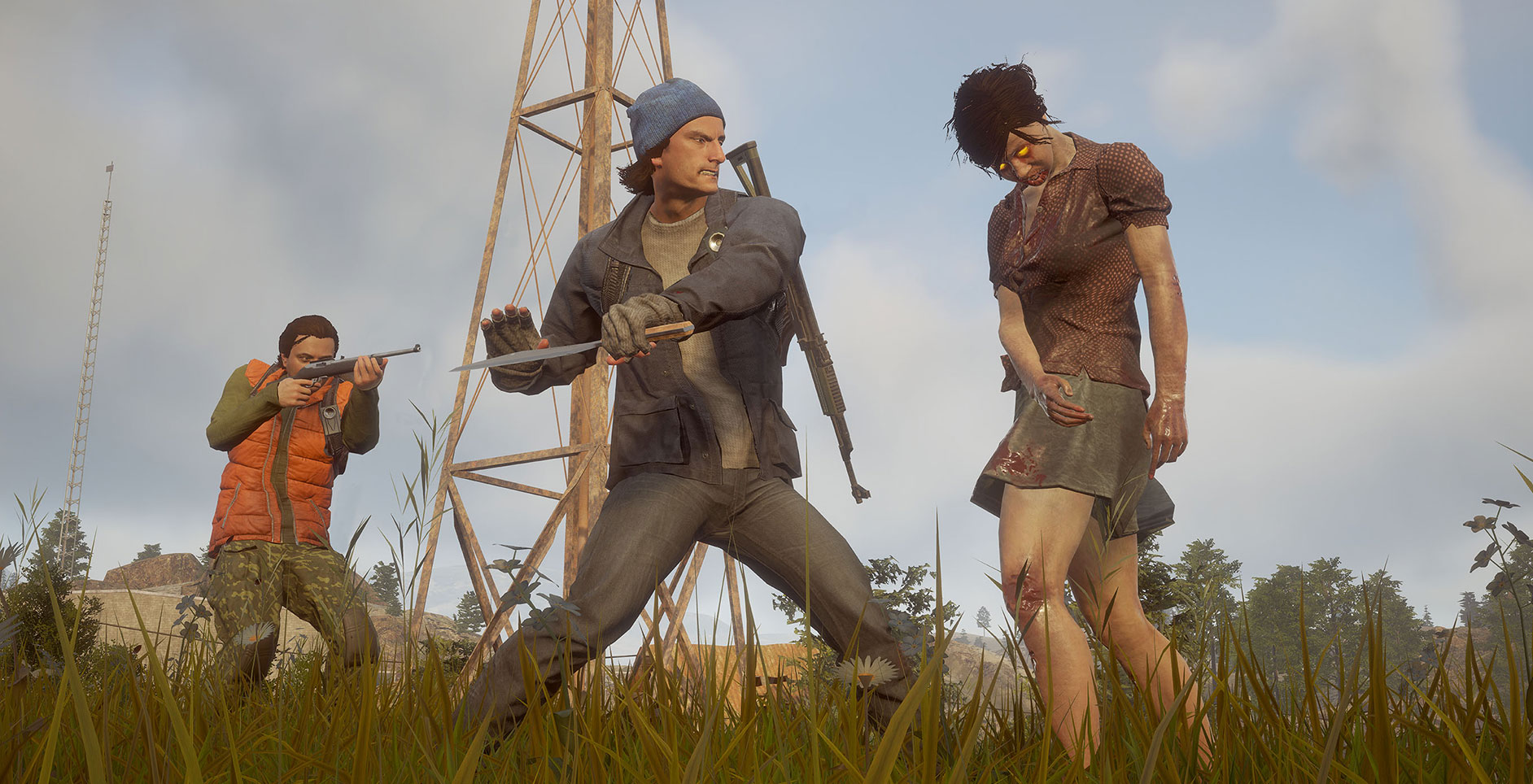
Did community feedback shape any of the features included in State of Decay 2?
Yeah so multiplayer was certainly number one, and the way it was expressed is not ‘please add multiplayer’, but very much ‘I just want to play with my friends’. That was what people expressed, and so for me there was not this kind of cry for PvP or an MMO or anything like that.
We took a chance with the original State of Decay which was the whole perma-death thing, and, in turns out, as we’d hoped people understood that was an important part of making a true survival experience — you have to feel that threat. But what makes it work is this complicit contract, that is if you die, you should always believe it’s because of the choices you made and decisions you made. Not because we as game developers put some unfair mechanics into the game or just decided to slap you down.
So in the first game we had this offline progression mechanic where if you didn’t play for three days and then you logged back in we’d forward the simulation by three days, including all of the bad stuff that could happen. But that was violating the contract, and so I think the community was very vocal about them not liking the offline progression component, so we pulled that pretty early on.
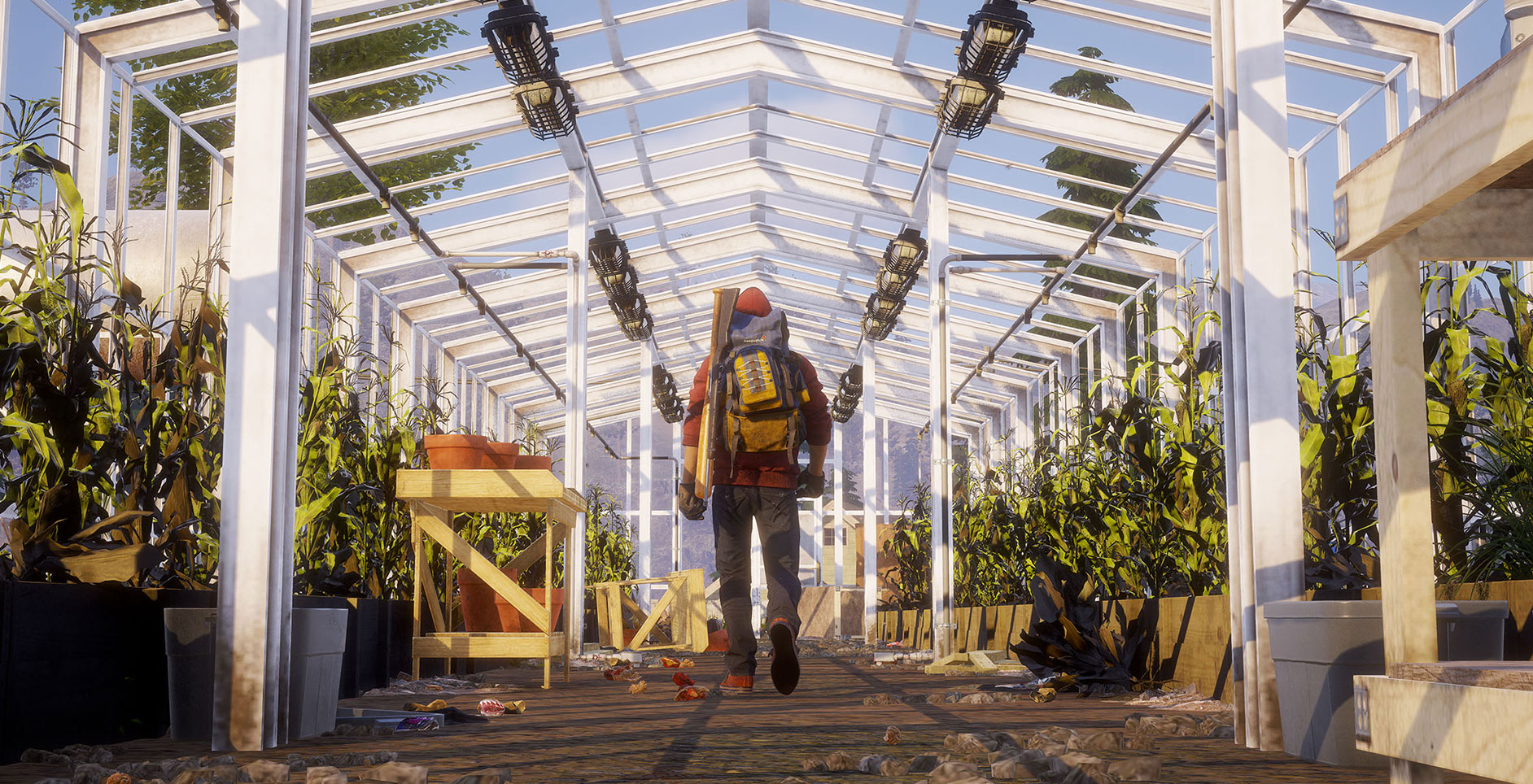
We’ve had television shows like The Walking Dead and Game of Thrones really come into the spotlight since the original game launched back in 2013. Have you guys pulled in more influences from these types of shows, or have you continued to stick with what the original game focused on in terms of theming and the like?
So it’s interesting as The Walking Dead was a huge influence on State of Decay, but it was the comic. And subsequent to the release of State of Decay, The Walking Dead television series has become a really big deal.
I think that one of the big pieces of feedback that we read and hear a lot is people saying that State of Decay, as a game, gets the closest to that experience of The Walking Dead. And that’s gratifying to us! That’s what we want — we want to make a game about long-term survival, and people figuring out how to work together to overcome a common enemy.
The first game came out when the zombie craze in games seemed to be at its peak, whereas these days it seems like we’re a bit past having so many games in that genre. For those tired of the genre, what makes State of Decay 2 something they’d be interested in?
Well I think that you don’t need to be into zombie games to like this game. We call it a survival fantasy game — it’s more about putting you in a position where, if we gave you any apocalyptic scenario, you think ‘am I going to be one of those people that live? Are you a survivor? Do you have the wits, the judgment to make the right call and navigate your way through the apocalypse?’ That’s what this game is all about.
Shooting zombies, and the joy of dismemberment, there are some people that are really into that. And hey, I love driving my 1967 vintage American muscle car down the road and putting that door out at just the right moment — it never gets old! But ultimately that’s not what’s compelling about the game. That blend of base building, RPG progression, and the simulated world is going to be very appealing to anyone even well beyond the zombie craze.
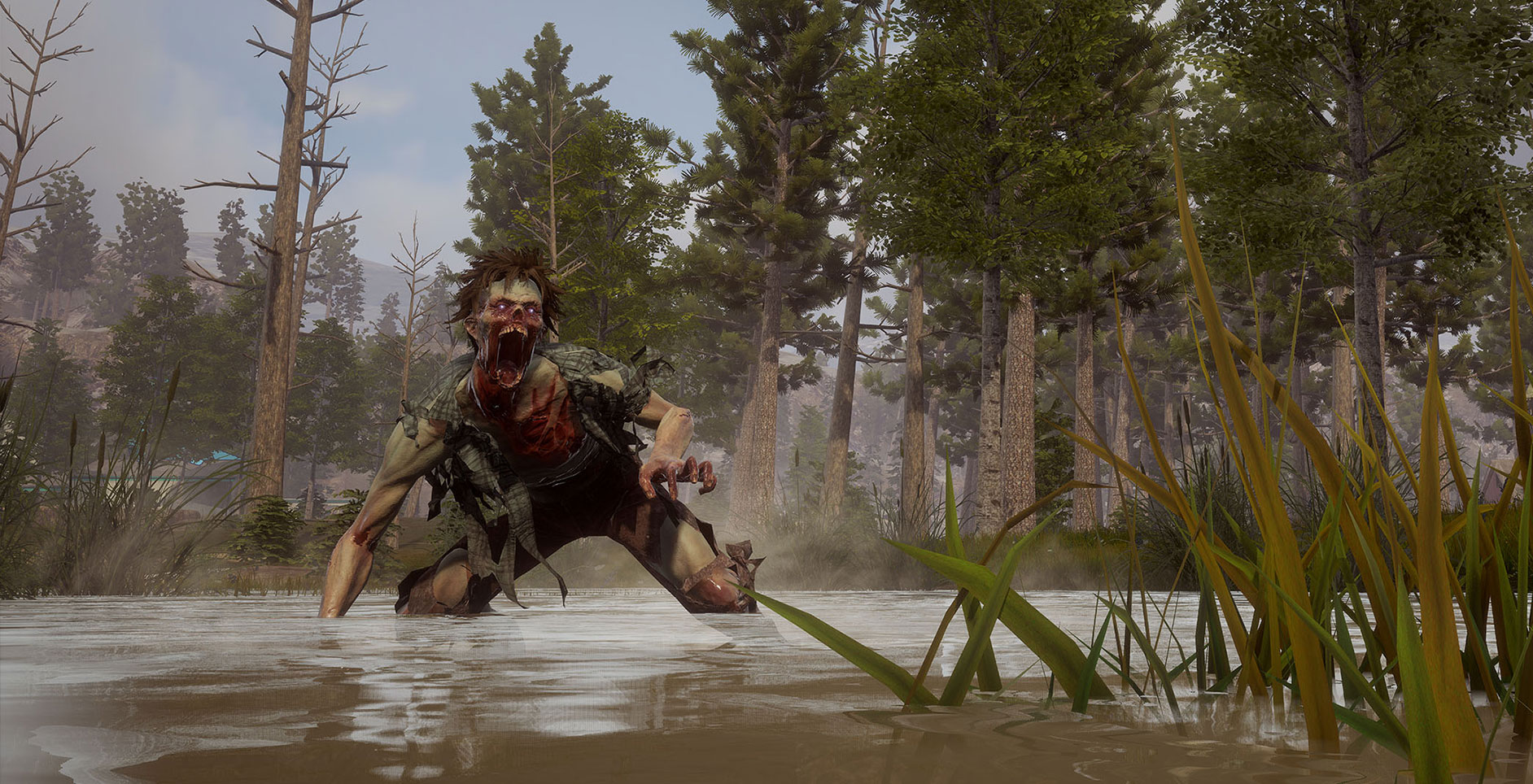
So multiplayer co-op wasn’t included in the first game, was that purely down to technical limitations and studio size, or was it something else entirely?
Something else entirely! It was an ambitious project from a small team and we got to a point that, if we were going to release it, we needed to scope down. There’s no getting around it — State of Decay was a big bet. It had design mechanics that were largely considered to be contrary to game design 101, like perma-death, and its particular blend of elements was a formula that nobody could really point to and say ‘it’s like this’. And that makes all publishers uncomfortable, they can’t really put it into a category.
There was a definitely an element of saying ‘hey, we think this is super cool and compelling, let’s make sure the market agrees with us’. And yeah, the market agreed very, very, very strongly!
Talk to me about Xbox Games Pass – do you think this is the right direction, in your opinion, for the Xbox team to move in, and do you think it’ll be a big benefit for you guys? Especially in regards to multiplayer numbers?
I think so [in regards to multiplayer]. We had this demo at PAX East where it was just a 10-minute single-player run through of the mechanics of the game, and we had multiplayer available but we were only going to put people into it if they asked for it because it’s harder to set up — you have to have stations next to each other, and logistically it’s just a bit harder to work. That said, word kind of spread that we had that, and by the fourth day of the show it was all anybody wanted to do.
So I do think that’s going to be a big part of the game. For us, things like Game Pass — to use industry terminology — creates a wide funnel. It makes it easy for people to jump into the game, try it out, and we hope become fans of the game. We’d much rather have a four year relationship with 10 million people rather than a six month relationship with five million people. We’re in it for the long haul.
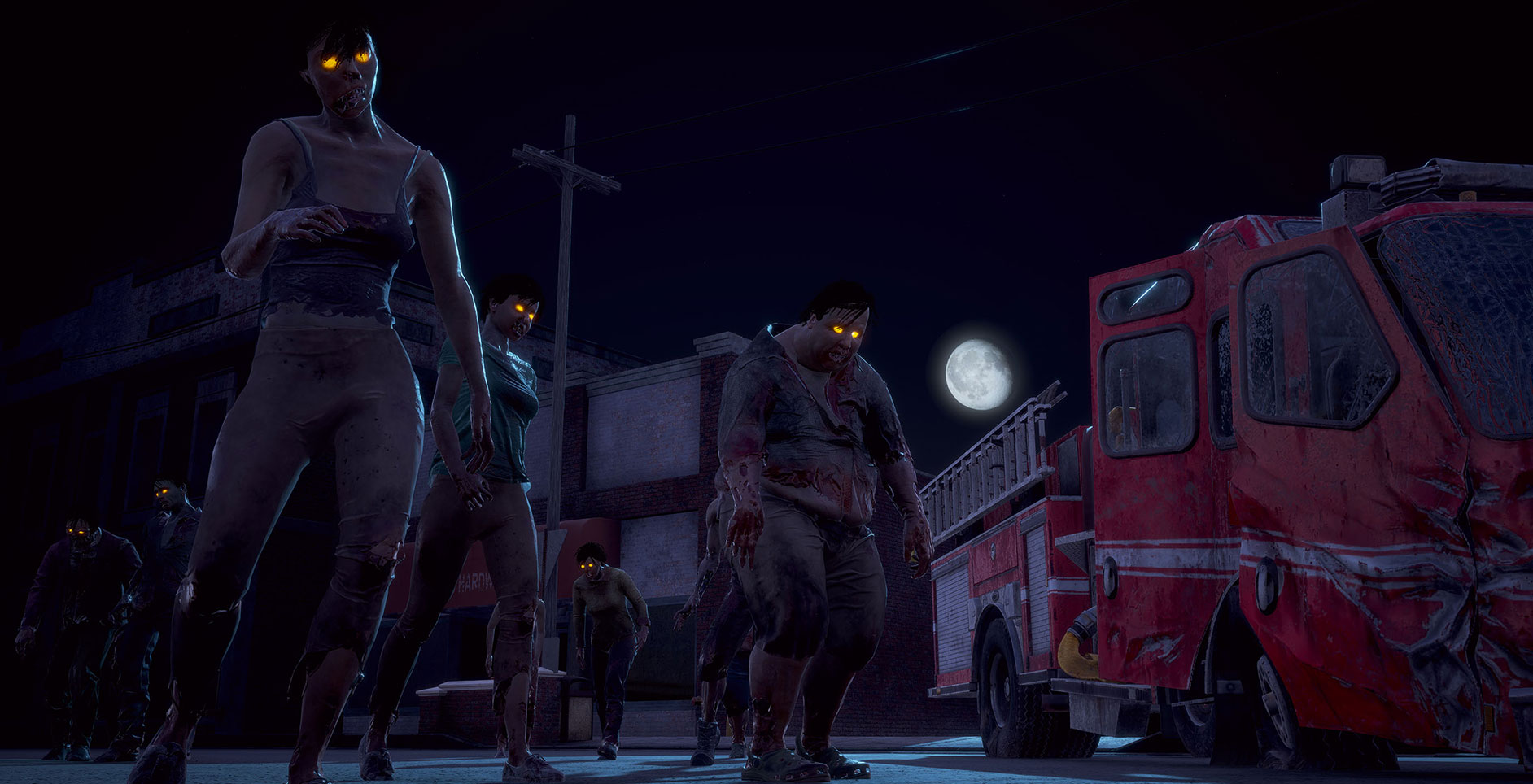
What’s been your favourite thing about developing State of Decay 2?
It’s been wonderful to have the ability to take some of the more raw ideas we had with the first one and really bring them to maturity in the sequel, as well as bringing in a much more refined and polished presentation. It’s taken several steps forward in terms of the presentation — this is a full-fledged game, the first one was an Xbox Live Arcade game and really pushed the boundaries of what that could do. It’s been great to take it to a more mature level.
Obviously the big one for me though, as my whole career has been defined by multiplayer games, is to be working on a multiplayer game again! I’m glad to be back to them!
Say State of Decay 2 does really well, what would you guys look to improve and work on in a possible third entry in the series?
The guiding principle, again, would be deepening the fantasy. We’re about to get a whole lot of market feedback for State of Decay 2, just like we did with the first. And just like we used that to decide how we were going to move it forward with State of Decay 2, we’d do the same with State of Decay 3.
Players will tell us — even if does really, really well — what they like and don’t like. We’re going to be surprised about what players like the best, and we’ll be surprised by some of the things they don’t like. And we will immediately be starting to use that to cast forward to the future, and what it would look like. The future could be that larger-scale shared world that we used to talk about five years ago. Certainly I think adding in even more of the survival mechanics that people think of when they think about being thrust out into the world without any social support would be there as well.
So, without getting into specifics, I think that would be the guiding principles — let’s look at what people like about State of Decay 2, what they don’t like, and blend that in with some of our ambitions with where we’d take it into the future and then build it. And we’ll do that for as long as
